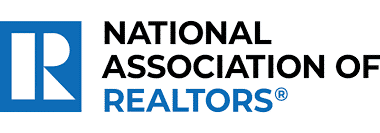
A pocket listing is a real estate industry term for a property that a broker has been given the exclusive right to sell by virtue of a signed listing agreement. However, the property isn’t listed on a multiple listing service (MLS). Why would a real estate agent want to sell a home without listing and promoting it on the MLS? Is this practice even legal?
In this article, we’re going to dive a little deeper to discover why some real estate professionals pursue pocket listings. We’ll explore their positive and negative effects on local markets and the industry as a whole, and what the National Association of Realtors (NAR) has to say about pocket listings.
Are Pocket Listings Legal?

Yes, at the time of this writing, pocket listings are legal in all 50 states. No existing laws prohibit a real estate agent from representing a contracted seller while withholding that listing from the MLS.
However, through a controversial vote held at their annual conference in November 2019, NAR’s leadership effectively eliminated the practice of pocket listings starting in May 2020. Their decision requires NAR members to post listings to their local MLS within one business day of signing any listing agreement.
Did NAR make the right move by effectively banning pocket listings? We’ve got our opinion on it, but before you make up your mind, let’s dig a little deeper into the effect pocket listings have on local markets and the industry as a whole.
How a Pocket Listing Can Be a Good Thing

First, let’s talk about the benefits of a pocket listing. For real estate agents, having a listing in your “hip pocket” means you have exclusive control over it. Since our first duty as real estate agents is to protect our clients’ best interests, having the option to keep a contracted property off the MLS is a good thing. Here’s why.
A real estate agent can limit the property’s exposure exclusively to qualified buyers with a pocket listing. For this reason, pocket listings are most prevalent in higher-end markets. According to Los Angeles-based The Real Deal, upward of 22% of the deals closed in the second quarter of 2019 were pocket listings.
Christopher Dyson, director of the Estates Division and a broker with The Agency in Los Angeles, confirmed this for us. “When you get to $10 million properties and above, pockets are probably about 20 to 25% of those listings.”
Discretion is another reason real estate agents choose to pursue pocket listings. A client may not want their property publicly listed for sale for privacy or security concerns. In many markets like Los Angeles, the listing itself can turn into a media spectacle, especially if the seller is a celebrity, government official, or high-net-worth individual.
What Pocket Listing Critics Are Saying

Many critics of pocket listings claim that we’re not giving our clients the best shot at getting the highest and best offer when we opt out of the MLS, which offers exposure to the broader market and the full range of potential buyers.
However, before giving your client’s property full market exposure on the MLS, both you and your seller may decide first to test the waters at a particular price point. It’s a calculated strategy designed to secure the highest and best outcome for your client.
While the best price and the client’s best interest are often the same, the NAR Code of Ethics doesn’t specifically say that a Realtor’s obligation is to the highest price. Rather, it says that our obligation is to the best interest of our client. More on that later.
If your client clearly understands the potential impact on an offer price by keeping their offer of sale private and still chooses to withhold their listing from the MLS, one could easily argue that you, as their agent, have fulfilled your fiduciary responsibility.
Why Pocket Listings Are a Bad Thing

NAR’s rationale for blacklisting pocket listings was that some of the Realtors who used this practice were doing so in pursuit of their own best interests and not those of their clients—or at least that was the perception.
By restricting the field of potential buyers, an unscrupulous listing agent may simply be boosting their chances of closing a double-sided deal. Well-connected listing agents with extensive ties to potential buyers might find pocket listings a relatively easy way to double their income. Obviously, this practice isn’t kosher if the Realtor’s primary motivation isn’t their client’s best interest.
Pocket listings can also negatively affect local markets since they’re often not reported to the MLS once they close, meaning they’re not included in data used by area real estate agents when conducting CMAs and area appraisers conducting area appraisals.
It can be argued that pocket listings limit reporting accuracy, thereby limiting our understanding of our market. Without a clear and comprehensive view of all sales transactions in our market, we collectively have a harder time serving our clients.
Additionally, if the sale of a pocket listing is reported to the MLS, the listing real estate agent has no duty to disclose the “list price” of the home—only the sold price. Again, unscrupulous agents can report that the home sold for 100% of the asking price.
This subtle manipulation might seem trivial to some. But skilled buyers’ agents often use a neighborhood’s list-to-sale ratio as a factor in deciding on a fair offer price, exacerbating the potential damage of incomplete reporting.
Finally, pocket listings can be a tool of disenfranchisement for minority communities who are often less connected to agents who hold pocket listings. Qualified buyers in minority communities or groups may have fewer opportunities to make purchases of pocket-listed properties.
If Pocket Listings Have Been Banned, Are They Still Happening?

The short answer is yes. But in practice, pocket listings look and feel a little bit different than they did before NAR’s landmark decision in 2019.
Savvy listing agents have taken to listing such properties on Friday mornings. In doing so, they relieve themselves of having to file with their MLS until the end of the business day on the following Monday. Many agents have taken to calling this period the “coming soon” window.
While this seems like a short window, a lot can happen in a weekend! Open houses, phone calls, emails, texts—outreach to the pocket listing agent’s buyer sphere. Choosing a holiday weekend gives the agent an additional 24 hours to market the home for sale without exposing it to the MLS.
Whisper Listings vs Pocket Listings
The practice of “whisper listings” is starting to become more commonplace, especially in high-end markets. The major difference between a whisper listing and a pocket listing is exclusivity.
A whisper listing isn’t technically a listing at all. It’s more of a relationship or even a conversation between an agent and a property owner that goes something like this: “If you know someone interested in buying a home like mine, I might entertain an offer, but I’m not putting my home on the market.”
Sellers who have this type of understanding with an agent have no obligation to remain exclusive. Nor do they have any obligation to abstain from reaching out to an interested buyer themselves, and arranging a for-sale-by-owner agreement. They’re free to date other people, so to speak.
Whisper listing arrangements are built on trust, and while they may work for some real estate professionals, they are inherently risky. For obvious reasons, they’re unlikely to become a major trend.
What’s the Best Way to Manage a Pocket Listing?

If you’ve determined that a pocket listing is the best option for your seller—at least in the limited form now stipulated by the NAR—there are a couple of things you should do.
Open & Transparent Communication
First, you need to have a clear and explicit conversation with your seller about the decision to hold their property off the MLS for as long as is allowable. Talk through the benefits, the potential harms, and everything in between.
We’d suggest drafting an addendum to the listing agreement with an “MLS live date” specified, as well as a disclosure of the seller’s understanding of the circumstance. This document will be very valuable to you should someone from your local association question your decision. You’ll have a paper trail that clearly lays out your intent.
Lay the Groundwork for a Pocket Listing
Second, before you sign a listing agreement, make sure you’ve done everything you can to prepare for the listing to go live so that the “pocket period” can be spent doing outreach and buyer generation, not taking listing photos. Ideally, this period should be between Friday morning and Monday afternoon.
Choose the Best Tools
Finally, make sure you’ve got a strategy in place to reach out to the right people at the right time. Having prewritten, templated communication is a good practice and sets you up for success with pocket listings.
A good real estate CRM gives you these tools. If you’re a solo agent, LionDesk is a fantastic option. They’ve got a great starting price point, they offer a ton of automated email and text message communication options, and they have a 30-day free trial you can use to check out the platform to see if it’s for you. We’ve done a full review of LionDesk to help you evaluate it.
Whether you’re running a team or a brokerage, Realvolve is a great platform that offers lots of customization options, including lead routing, custom lead drips depending on the agent and lead source, and more. We’ve explored these in our review of Realvolve to help you learn more, or check out our guide to the Best Real Estate CRMs of 2021.
NAR’s Official Stance on the Pocket Listing

You’d think that NAR’s position on pocket listings would be crystal-clear considering their leadership decision to effectively eliminate the practice. However, in the eyes of many of their members, that isn’t the case. Here’s why.
Article One of the NAR Code of Ethics says explicitly that “When representing a buyer, seller, landlord, tenant, or other client as an agent, REALTORS pledge themselves to protect and promote the interests of their clients.” We’ve already shared some pretty clear examples of scenarios where a pocket listing best serves the client’s interests.
Article Three of the Code goes deeper on this. It states that a Realtor must cooperate with other brokers except in situations where cooperation isn’t in their client’s best interest.
In Standards of Practice 3 through 10, the Code further elaborates on the duties laid out in Article Three, indicating that any cooperation and sharing of listing information with other brokers is obligatory only when “it is in the best interests of the sellers/landlords.”
By banning pocket listings, NAR effectively says that any potential benefit to property sellers is negligible compared to an agent’s obligation to cooperate with other Realtors in the professional community. But the NAR Code of Ethics seems to say otherwise. It gives priority to the seller’s best interests over any question of Realtor cooperation or sharing of listing information.
The Close Take on the Pocket Listing

We try hard to maintain an objective stance on things happening in the real estate industry, but occasionally, we weigh in with an editorial position. This is one of those times. NAR shouldn’t have banned pocket listings. While they can create situations where the client’s best interests aren’t being served, they are a tool that a real estate agent should have in their toolkit.
Are there problems with pocket listings? Absolutely. NAR’s policies force some of the more nefarious tactics and strategies to go underground and become unregulated.
Reporting
The lack of data reporting and the potential harm pocket listings have on minority communities are serious issues. But, the banning of this practice isn’t the solution to these problems, especially since the resulting rise in whisper listings actually magnifies these issues in those communities.
If we were making the rules, pocket listings would be allowed, but they would require significant documentation throughout their lifespan. They’d also be subject to as much review as a standard public listing.
Accountability
We’ll concede that the issue of accountability—the common complaint about pocket listings—is legitimate. They seem to happen in the shadows. However, real estate is a unique industry that involves nearly a dozen people in every two-sided transaction. Each one acts as an advocate for their side of the transaction and as a fail-safe against errors and impropriety.
Each transaction brings together a buyer, seller, at least two agents and brokers, mortgage company, appraiser, and title company—not to mention the leadership on local MLS boards and other governing bodies. As such, there are a lot of parties that monitor legitimate transactions.
By solving the accountability and transparency issues, the pocket listing as a practice could be made safe, less ethically risky, and a legitimate option for property owners.
So, do we agree that pocket listings are a good thing? Not necessarily. But should they be banned from happening? No.
Your Turn
We want to hear about your experience with pocket listings. Do you think they should have been banned? Have you had pocket listings before? Tell us in the comments below.



Add comment